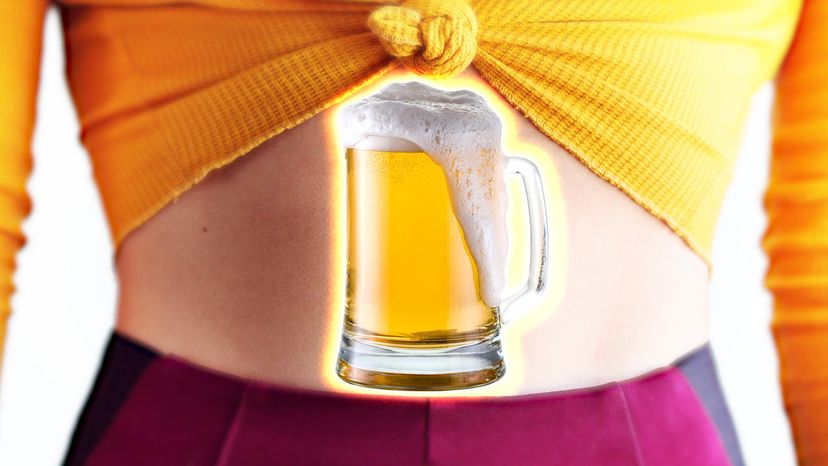
Beer. We tailgate with it. We celebrate with friends over it. And, in the case of a select few, we brew it in our own guts. Wait, what?
Yes, it's true. Some people brew beer in their own bellies, but it's really not as convenient as it sounds. People with this condition have been arrested for unknowingly driving under the influence of alcohol and have been accused by family members and medical professionals of being "closet drinkers."
Advertisement
For people afflicted with auto-brewery syndrome, the simple act of eating carb-rich foods — bagels, pasta, sugary sodas — will kick off a series of unfortunate gastrointestinal events that result in elevated blood alcohol levels.
For most people, the gastrointestinal system brews tiny levels of ethanol during the course of normal digestion. For those with auto-brewery syndrome, an overgrowth of one of several strains of common yeast or bacteria causes an extreme reaction. The condition causes the afflicted to have the signs and symptoms of alcohol intoxication — even if they haven't ingested a drop of alcohol.
Although rare, auto-brewery syndrome affects both adults and children and is thought to be widely undiagnosed. As a result, people experience side effects that are chalked up to other maladies, such as chronic fatigue syndrome, irritable bowel or memory loss. They experience life through a vomiting, belching, dizzy lens.
People who subsist on a diet high in carbohydrates and sugars are believed to be most at risk, since these compounds feed the yeast and bacteria that ferment and result in ethanol production.
Those who have diabetes, fatty liver disease or frequent bowel obstructions are thought to have an elevated risk. However, the use of antibiotics — which can change the gut's microbiome — also has been implicated in the condition.
The condition was first reported in Japan in 1952, but wasn't formally named until 1990. To diagnose auto-brewery syndrome, patients often are isolated for a period while eating high-carb, high-sugar foods and being observed for intoxication. If blood-alcohol levels rise, auto-brewery syndrome may be the culprit, and the patient is then treated for yeast or bacteria overgrowth and encouraged to make dietary changes.
Advertisement


